9 Tips to Ensure You Have a Safe Spring Road Trip

Spring heralds the start of vacation season as many families and college students hit the open road to enjoy much-needed spring break getaways. Yet before you head off on your next adventure, there are some precautions you can take to ensure that you and your loved ones stay safe and healthy on the road.
“Ultimately, safe driving behavior will not only ensure an enjoyable spring road trip, but will also keep your insurance policy costs from going up after an accident,” says Tully Lehman, spokesman for the Insurance Information Network of California.
Lehman and other experts recommend these nine safety tips when planning a road trip.
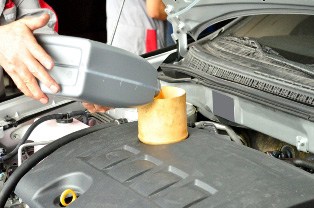
1. Get a tune-up
“Before you embark on a road trip, it’s important to take your vehicle to an auto repair shop to ensure it’s in good driving order,” Lehman says. The National Highway Traffic Safety Administration (NHTSA) recommends having your tires, battery, belts, fluids and air conditioner checked by a qualified mechanic.
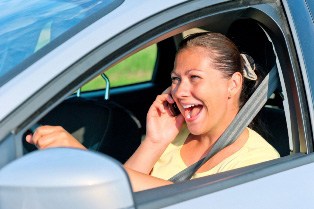
2. Put down the cellphone
“In many states, you’re looking at a hefty fine if you’re caught texting, or even holding a phone while you’re driving,” Lehman says. “Drive safely, set your phone aside, and enjoy the scenery and company of your family.”
For example, in Illinois, fines range from $75 for a first offense to $150. In Vermont, texting while driving can cost $200 for a first offense and $500 for subsequent violations. For a full list of distracted driving laws for each state, visit Distraction.gov.
Speed limit laws also vary by state. To ensure you don’t get a speeding ticket on your next road trip, visit the Governors Highway Safety Association’s website for a list of speed limit laws for all 50 states.

3. Exercise caution when driving at night
According to the NHTSA, 49 percent of deadly auto accidents in the U.S. happen at night. Fatigue and limited vision play a role in making night driving dangerous. If your road trip requires you to drive at night, Lehman suggests making sure your vehicle’s lights (taillights, headlights and signals) are in good working order, get a good night’s sleep, and allow yourself more time to reach your destination.
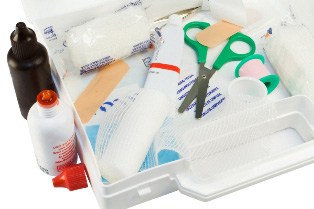
4. Pack an emergency first-aid kit
Spring is the time of year when trees start to bloom, pollen becomes airborne and allergies become rampant. By packing some essential first-aid supplies, you’ll be able to care for minor ailments on the road, and avoid searching a trip to a hospital or urgent care center.
“Rashes and allergic reactions to poison ivy and poison oak are common conditions that we see in the spring,” says Dr. Charles Shubin, a pediatrician with Mercy Medical Center in Baltimore. He suggests that you bring antihistamines to treat your allergies on your trip.
Shubin also suggests bringing bandages, dressings and antiseptics (for cuts and scrapes), ibuprofen or acetaminophen (for pain and fevers), sunscreen, and hand sanitizer.
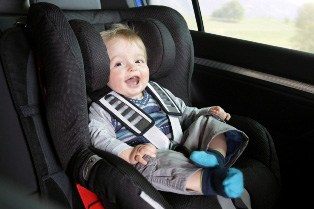
5. Ensure your child is buckled correctly
Parents need to ensure their child’s car or booster seat is appropriate for their child’s age, size and weight. “I’ve seen many children brought into the emergency room because their car seat isn’t installed correctly, or they aren’t buckled properly,” Shubin says.
To make sure the car or booster seat is installed properly, visit a car seat inspection station in your area (many are offered through hospitals and fire departments). For a list of child car seat inspection stations, visit SafeKids.org.

6. Pack healthy snacks
Long road trips call for plan-ahead snacks since your family may be sitting in a car for hours at a time. Shubin says granola bars and fruit are easy, healthy snacks to bring along. He also suggests bringing water and cups with lids for younger kids, and water bottles for older kids and adults, so that everyone can stay properly hydrated.
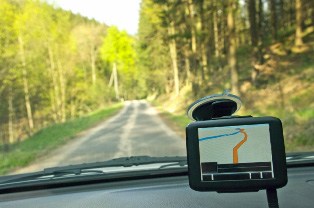
7. Bring a GPS
Shubin, who’s a grandfather, and been on dozens of road trips, has found his GPS to be invaluable. “In addition to getting you from one destination to another, a GPS can also help you to find local hospitals, restaurants and restrooms,” he says.

8. Properly restrain your pets in the car
If you’re taking your pets with you when you hit the road, it’s also important to take steps to make sure they travel safely. Lindsey Wolko, founder for the Center for Pet Safety (CPS) in Virginia, says, “We encourage dog owners to select a quality crash-tested harness to protect their dog, and also their family if an accident occurs.” The CPA has a report on the results of harness safety tests on their website.
And while it may seem cute to let Fido ride shotgun enjoying the breeze, Wolko says that’s a bad idea. “Allowing your dog to put their head out of the car window is dangerous for many reasons,” she says. “Road debris in his eyes can be painful for your pet and costly to treat at the vet’s.”
If you’re taking your cat on the road, Wolko recommends keeping it in a small carrier (including soft carriers, small hard sided crates or crash tested carriers like the Sleepypod carrier.) Small soft carriers or small hard sided crates should be placed on the floor behind the driver or passenger seats.
9. Don’t leave your child or pet in a hot car
According to Wolko, “heat stroke can be deadly and can happen in a matter of minutes.” According to the American Society for the Prevention of Cruelty to Animals (ASPCA), on 78-degree day, the temperature inside a parked car can reach 160 degrees, even with the windows cracked.
